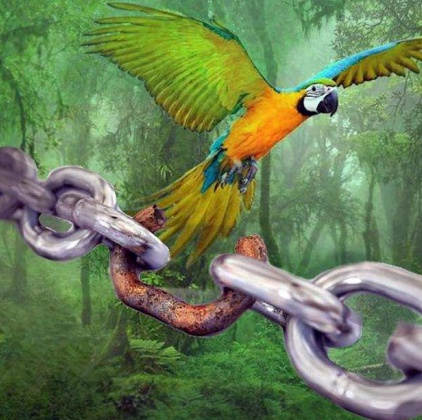The scrutiny and monitoring of the situation in Venezuela by international human rights bodies is neither a waste of time nor effort. This became clear after the request of the prosecutor of the International Criminal Court (ICC), Karim Khan, to resume the investigation into the crimes against humanity that have been committed in the country, in which he cited different organizations of the inter-American system and the United Nations Organization (UN) to give reasons for his opinion that the national authorities have failed to show a genuine will to punish the violations.
The document presented by the British jurist presented to the ICC Pre-Trial Chamber on November 1 mentions documents of the Inter-American Commission on Human Rights (IACHR) fourteen times, while the three reports of the Independent International Fact-Finding Mission on Venezuela (FFM) issued since 2020 are cited around 40 times.
“This is good news,” said Ali Daniels, co-director of Venezuelan NGO Acceso a la Justice, who added during a recent radio interview that this proves that the reports do not end up unread on the shelf.
In search of accountability
After recalling that the FFM has presented compelling and rigorous cases and exhaustive analyzes with direct sources from victims, lawyers, and relatives,” Mr. Daniels specified that the inquiries of this group are made from a criminal perspective that seeks to establish individual responsibilities.
In its third and last report published in September, the FFM denounced the use of intelligence services by the Government to silence, discourage and quash the opposition. The Mission also accused the Justice system of failing to act to punish the abuses.
Daniels also recalled that the ICC Prosecutor’s Office and other international bodies have collaborated to try to punish certain crimes in the past, and mentioned the case of Myanmar, on which the UN Human Rights Council also established a Fact-Finding Mission similar to the current one on Venezuela, whose findings provided inputs for the former ICC prosecutor, Fatou Bensouda, to determine the opening of an investigation for crimes contemplated in the Rome Statute.
Likewise, he welcomed Khan’s consideration of the pronouncements of the IACHR given that this is the international organ for the protection of human rights that has most closely followed the situation in the country.
The IACHR has published three special reports on Venezuela since 2003, in addition to its annual reports. Regarding the latter, Venezuela has been included in chapter IV since 2002, a chapter that lists the countries of the region in which “there is a serious violation of the fundamental elements and institutions of representative democracy provided for in the Inter-American Charter, which are essential for the realization of Human Rights”.
Sovereignty as an excuse
The co-director of Acceso a la Justice referred to the allegations made by the Venezuelan Prosecutor General imposed by the defunct National Constituent Assembly, Tarek William Saab, according to which the ICC Prosecutor’s Office is part of a “legal war” against the Venezuela State and that “there is no need” for the Office to investigate anything.
“The ICC is not colonizing anyone, it is not even a country (…) [What Khan is doing] is not colonialism because that implies a country taking over another one. That happens in Ukraine, but not here”, Mr. Daniels explained.
He also took the opportunity to reject the use of sovereignty as a tool to prevent the ICC from acting, explaining that:
“Venezuela is part of the Rome Statute, which it signed freely. But not only did it sign it, but it was also part of the group of countries that contributed to its adoption in 1999. And the government of Hugo Chávez took the last necessary step -its ratification- for Venezuela to adhere to the Statute with its publication in the national Official Gazette. The Statute is part of Venezuelan domestic law, it is the law in Venezuela and, therefore, interference by a body to which it has sovereignly adhered cannot be alleged.
Finally, Mr. Daniels considered that the information provided by the authorities shows that the crimes against humanity are not being investigated in the country and, therefore, the principle of complementarity that would allow the ICC to act can operate. Thus, for example, he mentioned that, out of 893 processes for serious human rights violations allegedly opened by the Public Ministry, 67% are in the preliminary phase -even though most of the crimes took place in 2017- and 85 % have yet to identify the suspects.
Likewise, he stressed that Mr. Khan took note of the fact that domestic prosecutors pressed charges for crimes contemplated in the Rome Statute in only 7.61% of the cases, while in the remaining 93% they charged for other less serious offenses.
How does this affect Venezuelans?
Prosecutor Khan’s decision to consider that the Venezuelan authorities are not genuinely investigating the crimes against humanity that have been committed in the country and the use of the reports from instances such as the FFM and the IACHR besides Government information reveals the relevance of international supervision.
With the decision to consider the work of other agencies, Karim Khan has saved precious time.
Today the victims are closer to justice because they have denounced their cases inside and outside the country, many of them with the support of civil organizations, which also highlights the importance of their work and the fruits of years of efforts in this field.
Translated by José Rafael Medina




